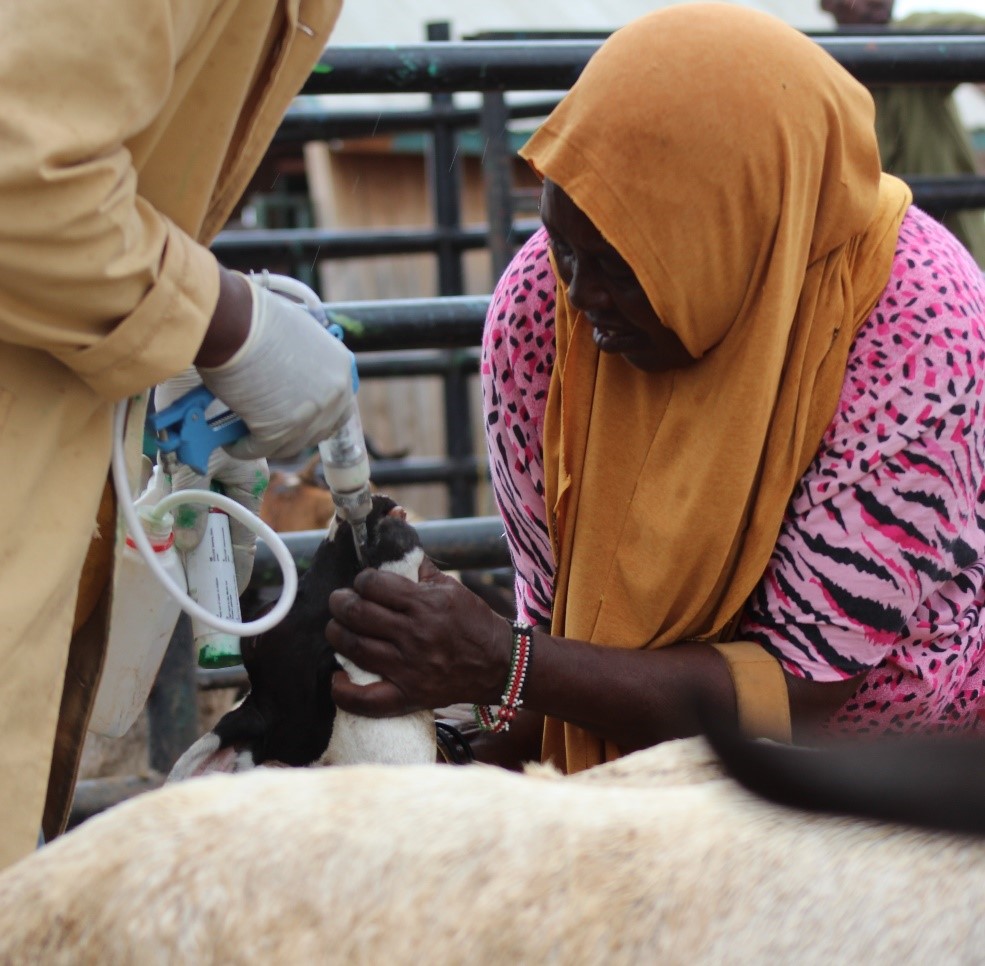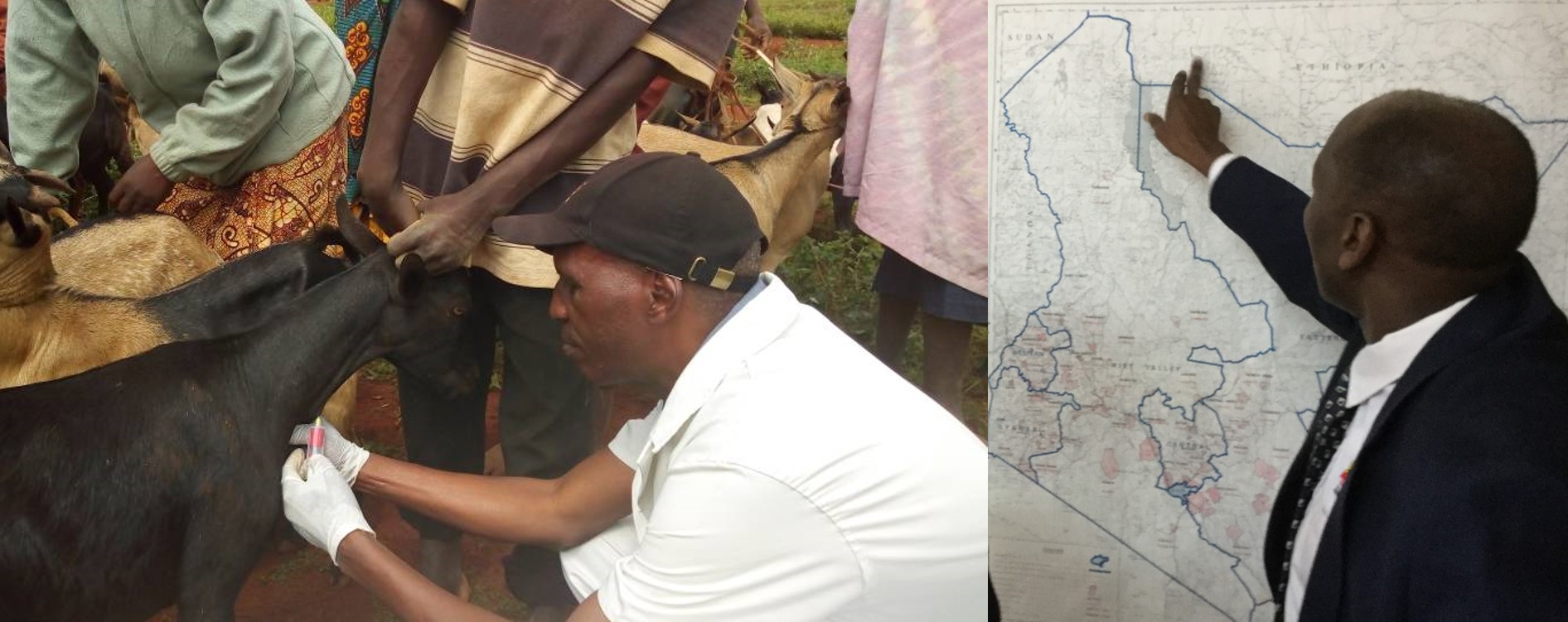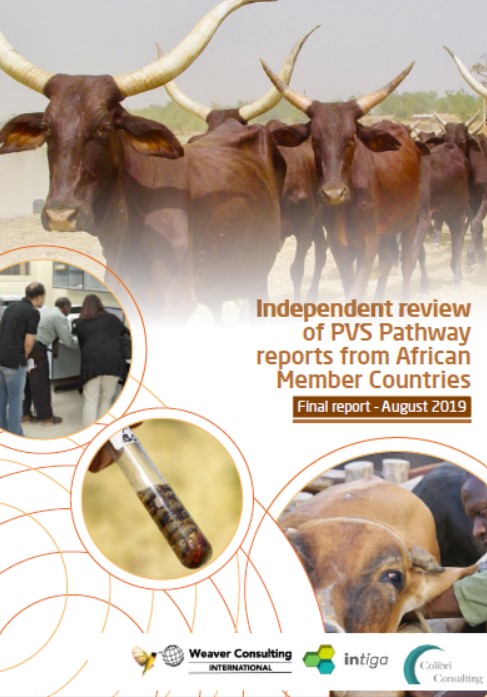
GF-TADs Logo (thumb) simplified
The Africa region is a very heterogeneous continent where transboundary animal diseases occur as endemic or epidemic diseases, have varying impacts in terms of trade, but also in terms of social cohesion, have varying environmental impacts and may or not be regarded as important diseases to prevent, control and eradicate from the decision making and resource allocation perspective, whether for economic, social or public health considerations.
In this respect the overall strengthening of Veterinary Services presents a cost-effective means to improve the generic preparedness and response to a variety of hitherto unknown hazards, many of which – experience shows – are likely to emerge as spill-overs from wildlife to people, either with or without an amplification host in the livestock population.
The Performance of Veterinary Services (PVS) Pathway was developed by the OIE to support compliance with established international standards. The PVS Pathway seeks to assess and support the strengthening of national Veterinary Services (VS).
PVS Pathway missions are delivered by accredited PVS experts who carry out independent external PVS Evaluations of country VS, and, as requested, implement supplementary missions including PVS Gap Analysis, Veterinary Legislation Support Programme (VLSP) and PVS Laboratory missions. These missions are voluntary and highly participatory requiring the input of in-country stakeholders. The PVS Evaluation and PVS Evaluation Follow-Up missions use a well-defined protocol, the ‘PVS Tool’, to assess the Levels of Advancement (LoAs, categorised on a 5-point scale) of a standardised set of Critical Competencies (CCs) which cover the whole veterinary domain, that is animal health, animal welfare, veterinary public health and food safety and associated activities. The CCs are grouped under four Fundamental Components (FCs).
In 2019, the OIE commissioned a comprehensive and independent review of the PVS Pathway reports of African MC. At the time of the review, 53 of the 54 countries in Africa had engaged in the PVS Pathway with a PVS Evaluation. As not all reports were made available owing to confidentiality agreements, this review was able to assess 46 PVS Evaluation reports, 47 PVS Gap Analysis reports, 18 PVS Evaluation Follow-Up reports, 25 Veterinary Legislation Support Programme (VLSP) reports and 6 PVS Laboratory reports from missions carried out between December 2006 and February 2019. This report – along with the PVS Pathway reports, accessible to Technical Partners and Donors through the password protected OIE PVS Database constitutes the baseline for this Action.



